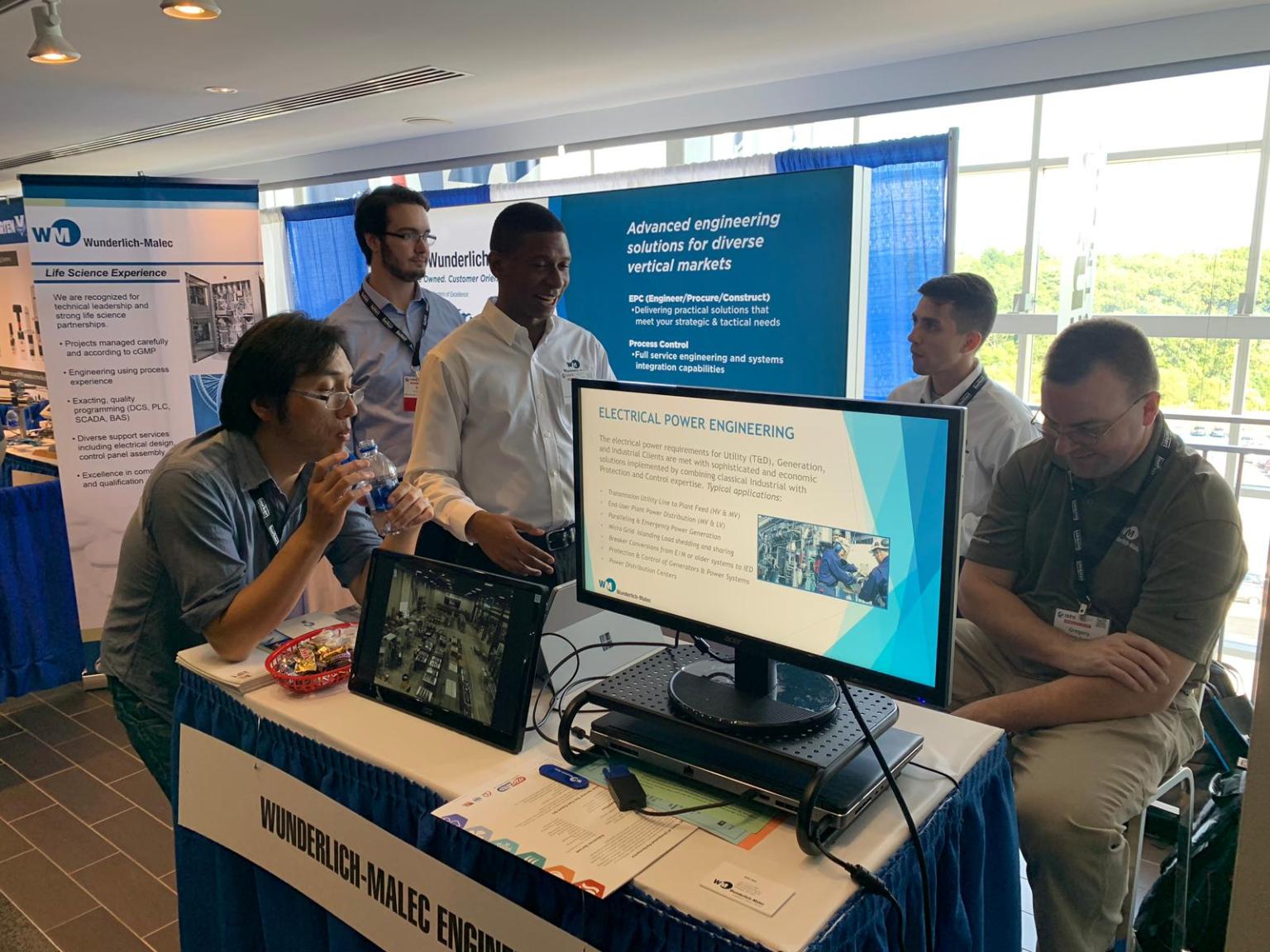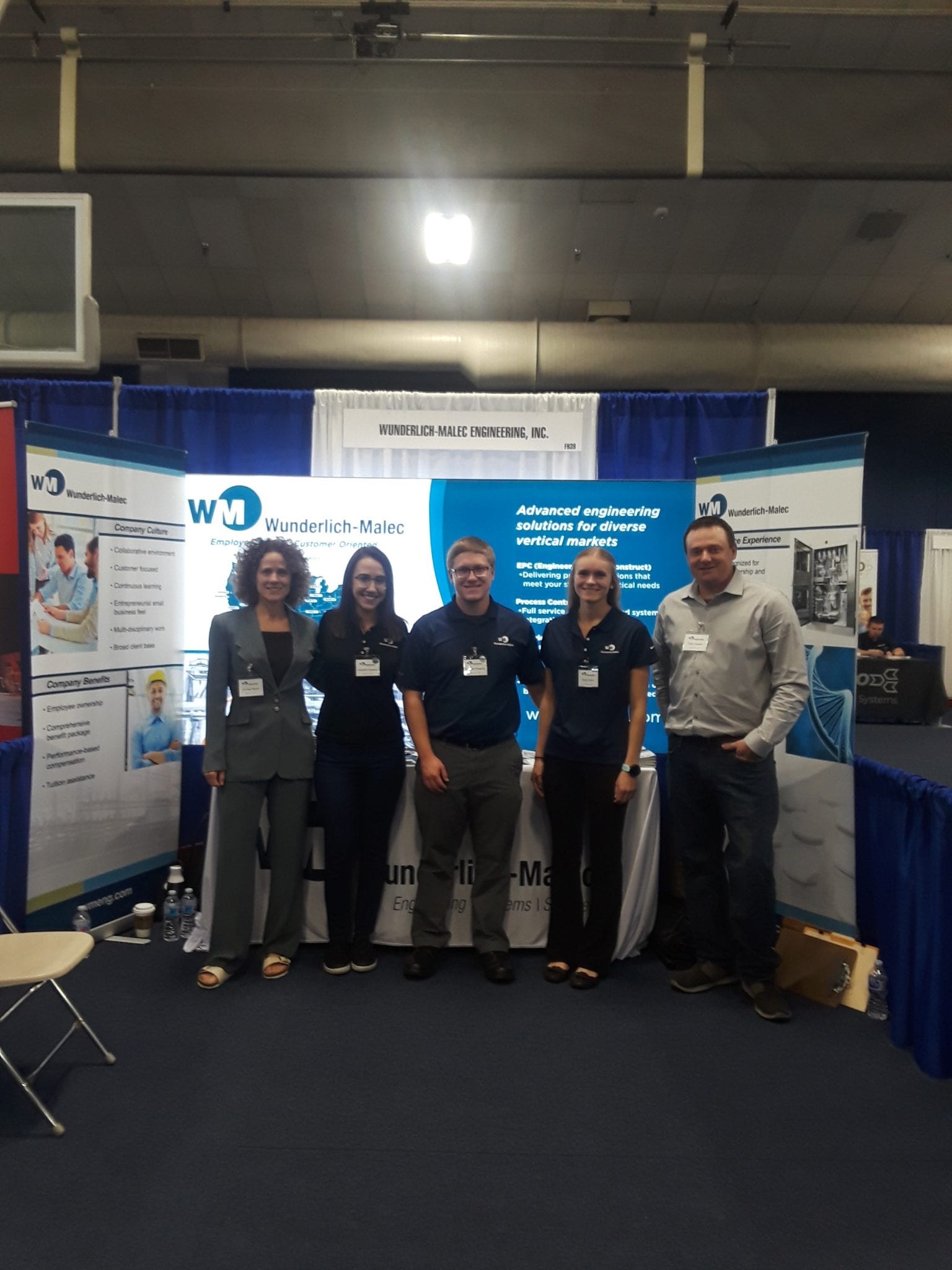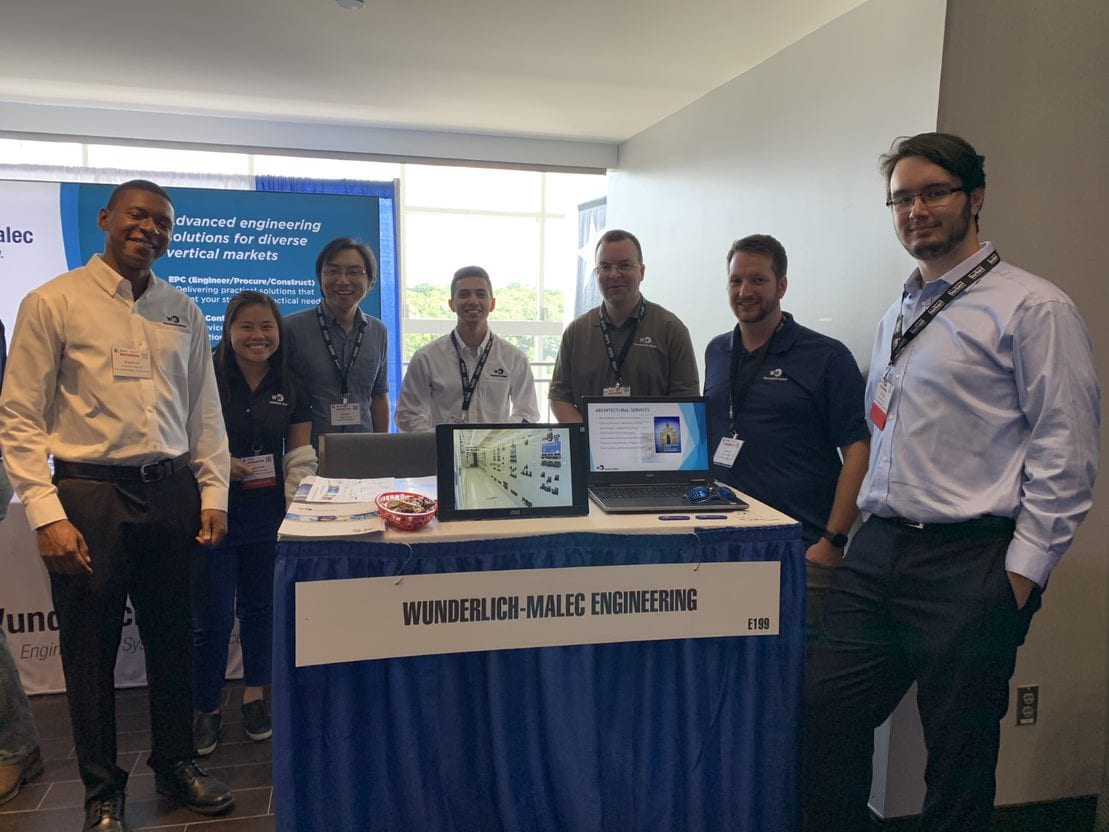Clear, accurate, authentic, honest communication is the heart of a successful relationship with our clients, our co-workers, and our personal relationships. We at Wunderlich-Malec recognize the foundational component communication is throughout the lifecycle of a project and throughout one’s career, and in all relationships throughout one’s life.
We’ve all experienced lapses in communication – whether it’s miscommunication or a lack of – we know it can slow progress, create frustration, and potentially damage relationships, both professional and personal. Just like any skill, our communication skills are constantly in flux either improving, staying stagnant, or degrading. We recognize communication is a constant work in progress so we took time to talk with two of our engineers about their experiences in this area.

Carol Spaulding is an Engineering Manager with Wunderlich-Malec based in our Winslow, ME location. She Power Engineering Group in Maine and specializes in Power Systems Engineering including protection and control design and relay settings, power system studies, and NERC compliance.

Andrew Michalets is a Sr. Project Manager with Wunderlich-Malec based in our Golden, CO location.
How do you define communication?
Carol: To communicate is to clearly put into words, spoken or written, thoughts, feelings, or instructions to express intent and eliminate the potential for ambiguity in meaning. In the realm of engineering, communication extends beyond written or spoken words, communication also takes the form of design drawings, equipment specifications, project schedules, etc.
Andrew: Communication is the foundation for human interaction and the primary way we express appreciation, resolve conflict, and share information.

In your experience, where in the chain of communication do things most likely to break down? Is there a specific area that you find is consistent in terms of lacking or ambiguous communication?
Carol: Communication breaks down when it is not something that happens routinely throughout an entire project. I find that scope definition and/or scope change is often an area where communications can either be ambiguous, or not communicated appropriately (ie… to everyone that it needs to be communicated to).
Andrew: I feel communication breaks down when things get subjective and different parties do not understand the uniqueness, we each bring to a situation. I think the most common area for ambiguousness is boundaries both personally and professionally. Personally, this can manifest as working too much or struggling too long before seeking assistance and professionally this often manifests as vague requirements, subcontractor conflict and most importantly strained change management.
Have you found communication skills to be needing addressing in the industry? If so, what have you observed?
Carol: By nature, many engineers are not the best communicators. We are very technically capable, but tend to be introverted over extraverted, which plays a role in comfort and success in communications. It can be easy to get wrapped up in technical details of the task at hand and not take the time to make sure communication in all areas is happening appropriately. Technical details are often only a part of what needs attention for a successful project.
Andrew: I think as with most things there is a wide range of excellence and difficulty. I think some of our customers are much more documentation focused and place a greater emphasis on communication whereas some of our customers are understaffed or under difficult budget constraints that allow room for communication difficulties to arise.
Can you talk about an instance where you brought previous experience with you to prevent or avoid a serious breach in the communication stages of a client interaction? What was the situation and what tipped you off to take communication a step further?
Carol: I cannot think of one big instance, rather regular smaller instances. Every day, I bring my past experience together to prevent a break in the communication stages of client interaction. There are always messages that need to be communicated, some are messages the client will be happy to hear, and some are messages that the client does not want to hear. Either way, it is of the utmost importance that all parties have the same understanding of what is happening throughout a project life cycle. Often you hear different things from different people, and I am always working hard to ensure that those messages conveying expectations become aligned.
Andrew: I joined a project, pharmaceutical batch controls, as it transitioned from design to deployment and the client began constantly changing the scope. I noticed immediately that our team was struggling to understand what was included in the design scope at a given time. I brought a proven communication system (Change Log on SharePoint) for change documentation, client review for approval, and subsequent status and implementation schedule. This communication tool allowed all the stakeholders to see the current design scope, what changes were pending, and when approved changes would be rolled out.
Can you talk about a time early in your career where you learned from “the school of hard knocks” the importance of client communication? What was the situation, where was the breakdown, and what was learned that you take with you into client interactions?
Carol: I worked for a company that had promised a project deliverable that was not delivered. Issues and delays were not discussed along the way, so the smaller items that could have been handled throughout the project, turned into one big issue at the end. The client was upset, and the level of shortcoming was beyond that which could be addressed via an email or a phone call. We set up a meeting with the client, where we were able to meet face to face to talk through everything that occurred. We knew going into that meeting that the client was not happy with us, we knew we were going to be in an uncomfortable situation. Regardless, mistakes were made, and we had to work through them. If we had not faced the issues and communicated clearly about how and why things happened, the client relationship would have been more severely strained. Had communications been better throughout the project, I doubt this meeting would have been necessary.
Andrew: Early in my career interacting with clients to understand their desires, I quickly learned ‘the hard way’ (missed schedule and budget) that the client’s technical team usually wants more than we have contractually committed to and will be paid for. The breakdown, and I think this is common but not deceitful, was that the technical stakeholders did not agree on the scope with the cost and schedule stakeholders on the client team. I learned that to deliver value to our customers, we must not only limit ourselves to providing the scope.

How big of a role does active listening play in your communication practices day-to-day? How do you define active listening?
Carol: Active listening is very important. I consider active listening “really” listening. When someone is talking, they should have your full attention. They should know from your responses that you are fully hearing, and processing what they are saying, without jumping to conclusions, or implying your own judgment.
Andrew: Active listening is a critical element of my everyday interactions with clients and management stakeholders to define, review, and modify expectations. Active listening to me encompasses detailed note-taking, reiterating my interpretation of key items back to the provider to ensure understanding, and ensuring all parties are heard.
Have you done anything specific to hone your listening skills? If not, how have your honed your skills throughout your career?
Carol: I like to think I pre-loaded by skill set. I hold an engineering degree and a business degree – this allows me to understand what is important to the different types of people involved in any project. I have a better handle on what things to be listening for. If I strictly thought as an engineer, I could brush off items of importance to those more on the business side of the house, and vice versa. I can’t say that I have done anything specific in relation to improving my listening skills as the years have progressed. I continually try to take from conversations things that go well, and things that don’t, and bring those things forward with me.
Andrew: I have taken specific PMI training courses to improve my listening and communication skills.
Have you done anything specific to hone your communication skills? If not, how has your communication skills improved over your career?
Carol: This response is generally the same as the last question. I like to think I pre-loaded by skill set. I hold an engineering degree and a business degree – this allows me to understand what is important to the different types of people involved in any project. I have a better handle on what things need to be communicated. If I strictly thought as an engineer, I could brush off items of importance to those more on the business side of the house, and vice versa. I can’t say that I have done anything specific in relation to improving my communication skills, as the years have progressed. I continually try to take from conversations things that go well, and things that don’t, and bring those things forward with me. I’m currently working on minimizing content – getting to the point, without a lot of extraneous information.
Andrew: I have taken specific PMI training courses to improve my listening and communication skills. Additionally, I’ve created some ‘cheat sheets’ for myself to refresh my memory on key topics of organizational culture to drive stakeholder engagement.

Wunderlich-Malec has an excellent reputation for client satisfaction, do you attribute our engineer’s communication skills to this, at least in part? If so, what do you think contributes to our ability to communicate with clients?
Carol: When intentions and expectations are clearly, consistently communicated, projects are generally viewed to be a greater success. Surprises are a result of poor communication, and often add strain to a project and impact the perception of overall success. A large number of the engineers employed by Wunderlich-Malec are not your typical engineers. Technically capable, yes, but also willing/able and interested in the bigger picture. Our personalities extend beyond the “typical” engineer. We hold ownership for what we do; we watch out for each other and our clients and we communicate all of this effectively through all of our projects because we realize this is at the heart of our success.
Andrew: I feel Wunderlich-Malec provides our engineers with the autonomy to execute good technical design and communicate with the client directly about their expectations. This direct and organic communication environment ensures client satisfaction.
